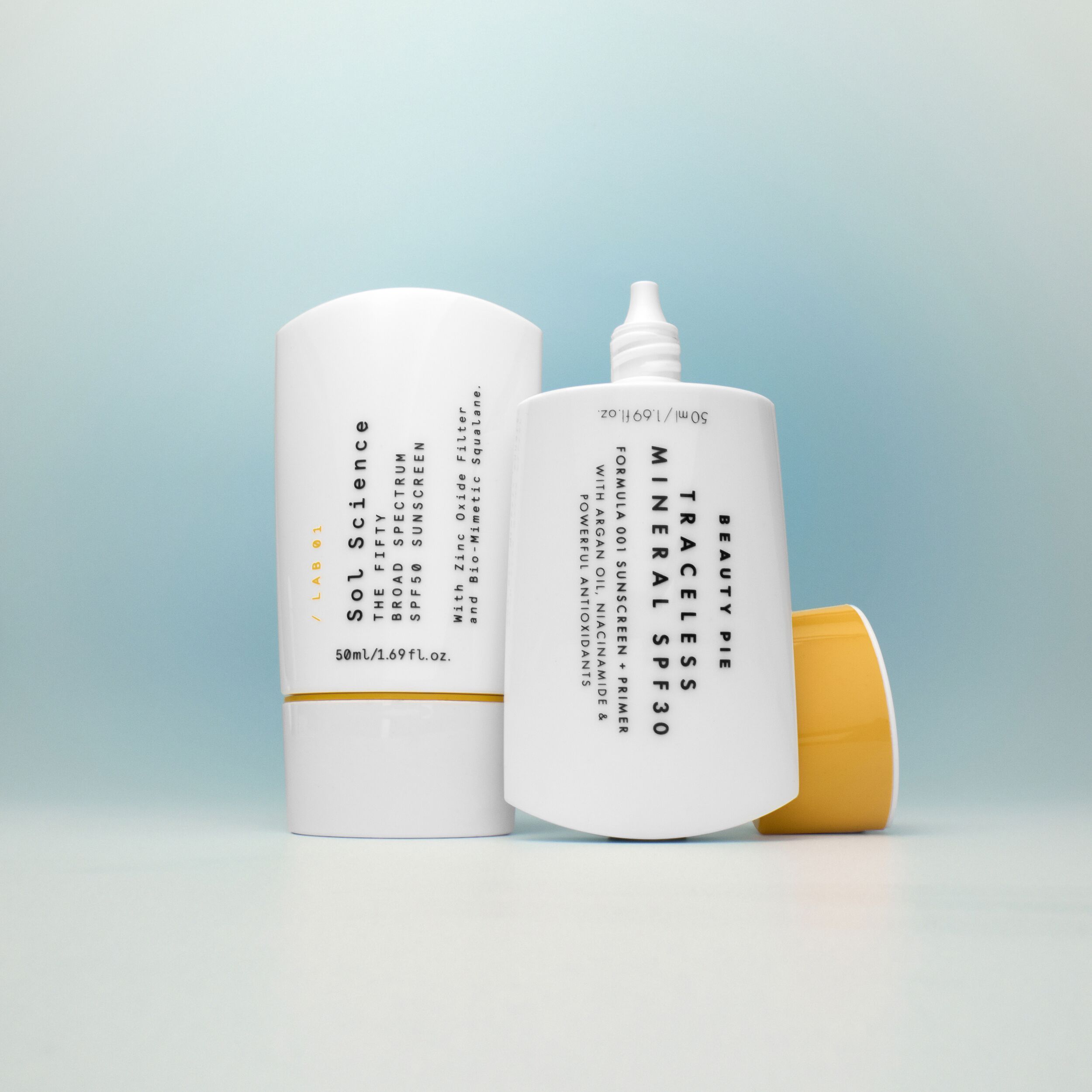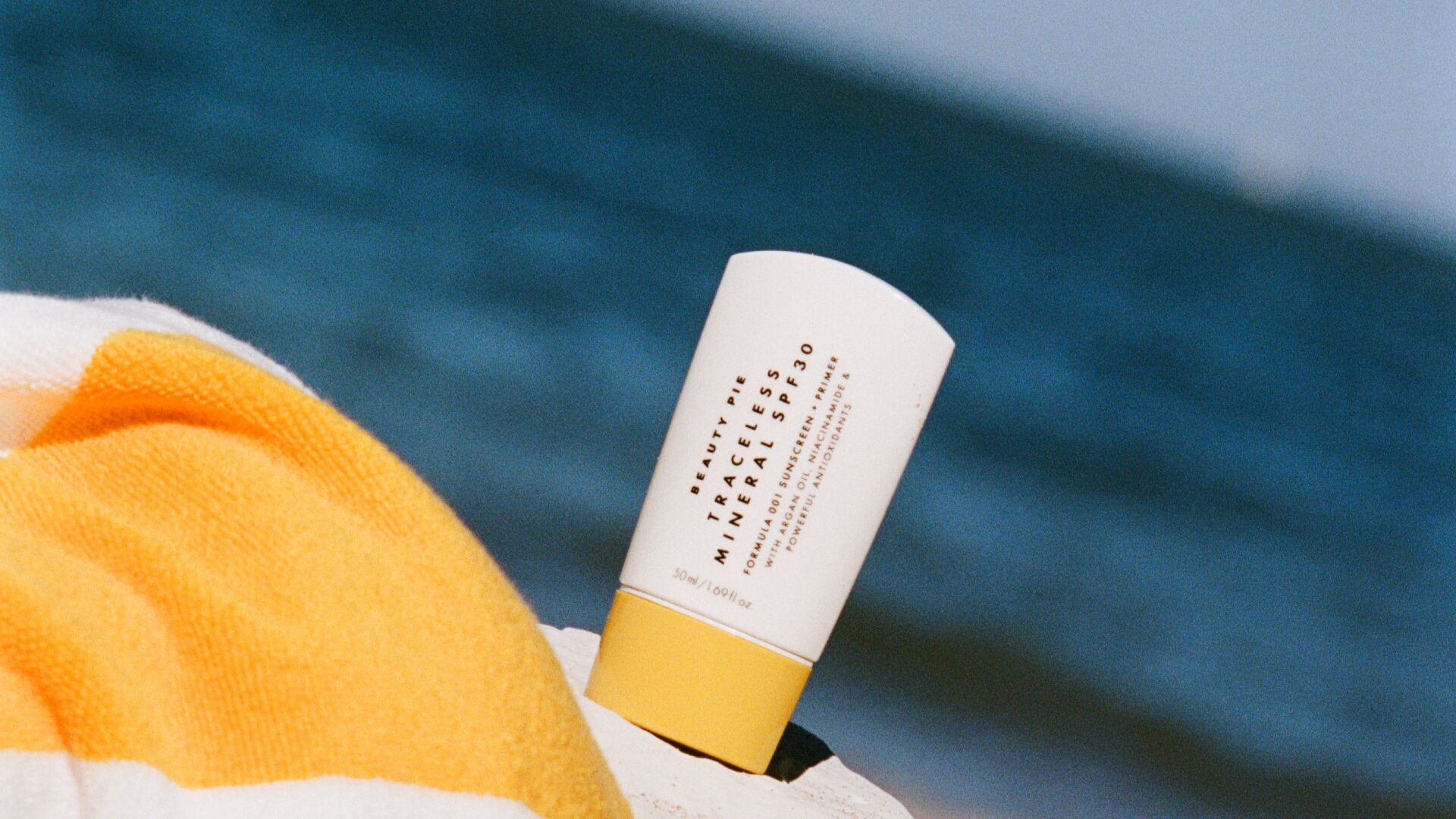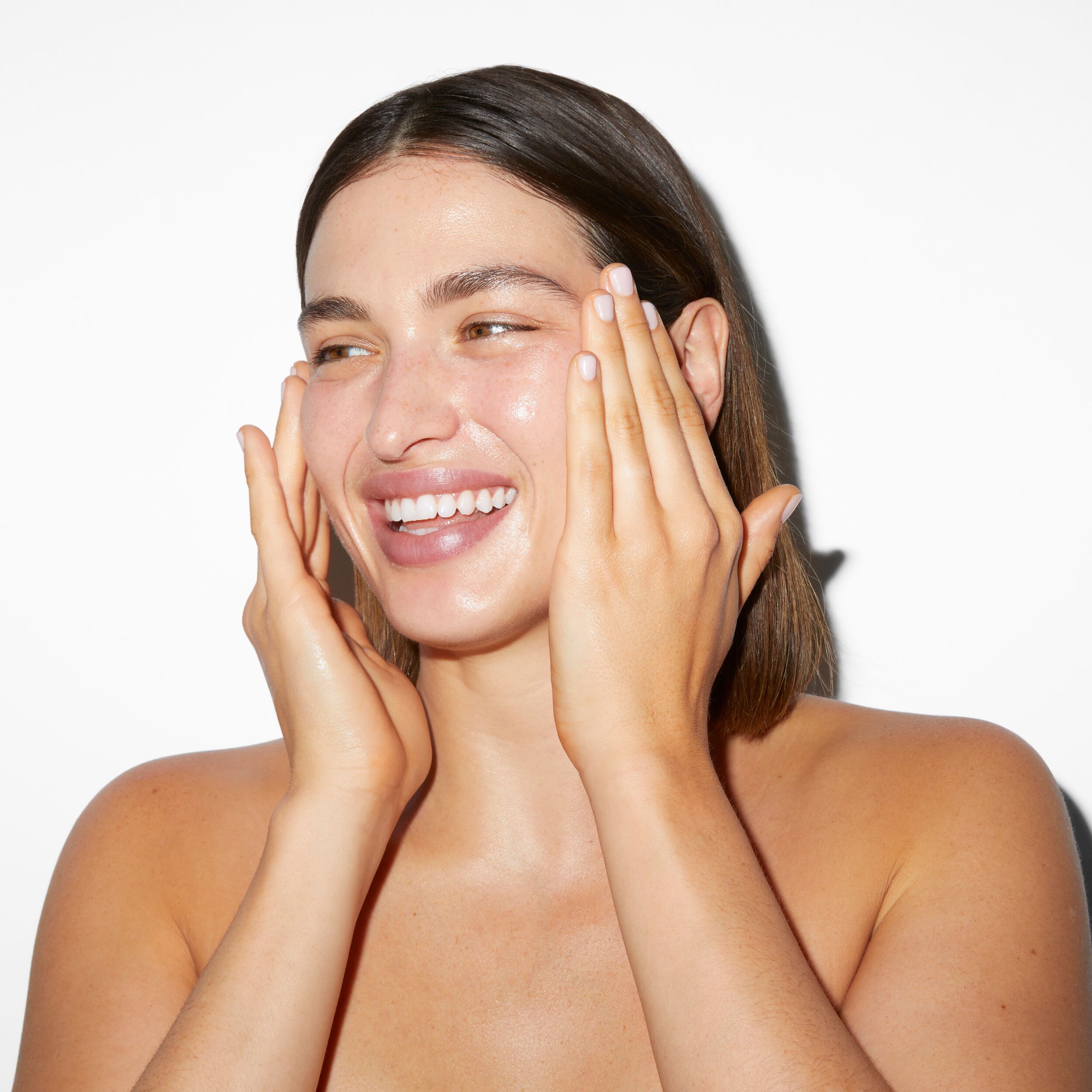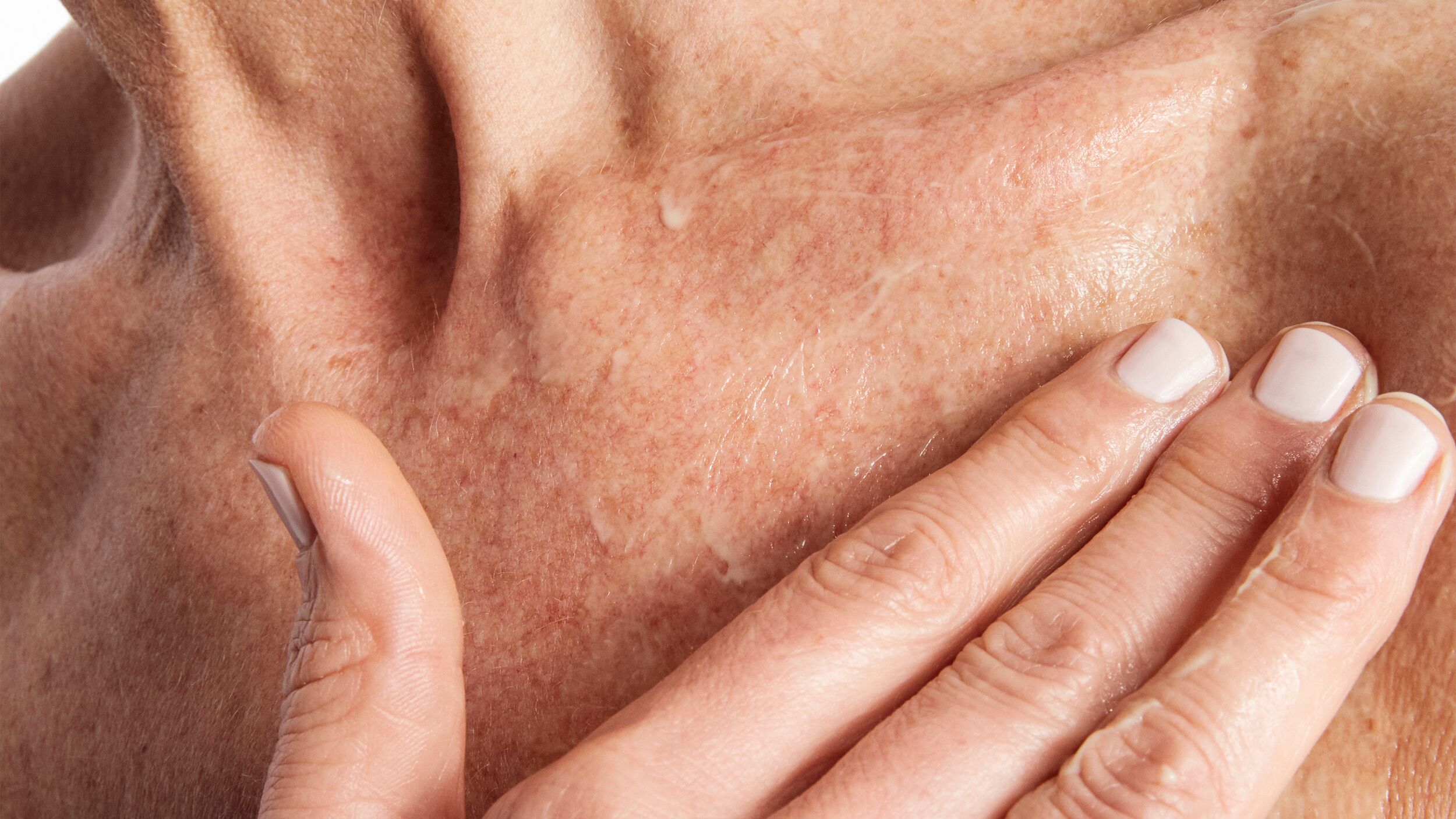
With social media and online platforms awash with tips, tricks and hacks on how to care for your skin, it can be hard to know which advice you should listen to.
To uncover the biggest SPF misconceptions and reveal the biggest mistakes people are making when it comes to protecting your skin against sun damage, we conducted a skincare survey, polling a representative sample of 2,000 people in the UK. Read on to find out the biggest SPF conceptions in 2024…
Top 10 SPF Misconceptions
SPF can be mixed with other products for better protection - 15% (believe to be true)
You don’t need to apply SPF if your skincare or makeup already contains it - 10%
SPF products cause a Vitamin D deficiency - 9%
Waterproof SPF products don’t need reapplying after swimming - 9%
You only need to wear sun protection when it’s sunny - 9%
A higher SPF means you don’t need to reapply - 8%
SPF causes cancer - 6%
Sunscreens do more harm than good - 6%
You only need to apply SPF to your face - 6%
SPF doesn’t work - 4%
Can You Mix SPF into Your Beauty Products?
The study found that 15% of people incorrectly believe that SPF can be mixed with other skincare products for better protection. Our research also reveals over 50% of people are mixing SPF into their makeup products, predominantly those aged 18-24, potentially affecting the efficacy of their sun protection.
Additionally, one in 10 people believe you don’t need to apply SPF if your moisturizer already contains it; however, a moisturizer with SPF is not sufficient to fully protect your skin from UVA and UVB rays.
Top Tip: Once you have cleansed, toned, hydrated and moisturized, you should always finish your morning skincare routine with a layer of SPF.
BEAUTY PIE collaborated with Dr Jinah Yoo, a Harley Street consultant dermatologist with expertise in anti-aging and hyper-pigmentation, who explains why mixing your SPF into other beauty products isn’t an effective way of protecting your skin.
Mixing SPF into products yourself can compromise its effectiveness. Using a dedicated sunscreen ensures adequate and consistent UV protection
Dr Jinah Yoo, Consultant Dermatologist
She said: “While SPF in moisturizers and makeup provides some protection, it’s often insufficient. Most people don’t apply enough product to reach the advertised SPF level, and reapplication is impractical. Additionally, mixing SPF into products yourself can compromise its effectiveness. Using a dedicated sunscreen ensures adequate and consistent UV protection.”
Do I Need to Wear SPF When it’s Gray Outside?
Our research also found that there is misinformation around when you should wear SPF, as one in 10 people surveyed believe you only need to wear sun protection on sunny days. “Wearing SPF every day is crucial because UVA rays can penetrate clouds and windows, causing skin damage year-round,” Dr Jinah Yoo explains.
“Daily use of SPF helps prevent premature aging, skin cancer, and hyperpigmentation, making it essential regardless of the weather.”
Similarly, one in five (20%) claim that during the colder months they ‘sometimes’ wear SPF, while almost two-thirds (62%) of respondents admit to either rarely or never applying sun protection in fall and winter months.
Looking specifically at spring and summer, when we typically expect to see more sunshine, just 24% of people say they always wear SPF, while an alarming 16% do not apply anything to protect themselves from sun damage.
Of the one in four respondents that always apply SPF, 41% were aged 18-24, compared to just 18% of those aged 65 and above, showing that the younger generations are leading the way in sun protection.
 Daily use of SPF helps prevent premature aging, skin cancer, and hyperpigmentation, making it essential regardless of the weather.
Daily use of SPF helps prevent premature aging, skin cancer, and hyperpigmentation, making it essential regardless of the weather.Does SPF Affect Vitamin D Production?
A key takeaway from the research is that viral topics on social media impact the beliefs of the general public. Recently there has been a lot of discourse around how SPF prevents the body from producing Vitamin D, which is causing a Vitamin D deficiency.
Our survey found that almost one in 10 people (9%) believe this to be true, and Google search data proves how widespread the misinformation is with 450,000 global searches for ‘SPF Vitamin D deficiency’ made each month.
While using SPF can slightly reduce the skin's production of Vitamin D, it is unlikely to cause a deficiency when used as directed
Dr Jinah Yoo, Consultant Dermatologist
On this popular belief that is circulating online, Dr Jinah Yoo clarifies: “While using SPF can slightly reduce the skin's production of Vitamin D, it is unlikely to cause a deficiency when used as directed. Most people can still obtain sufficient Vitamin D through limited sun exposure on unprotected skin, as well as from dietary sources and supplements."
"The health benefits of protecting your skin from harmful UV radiation far outweigh the minimal risk of Vitamin D deficiency. If you're concerned, consider discussing Vitamin D supplementation with your healthcare provider.”
High-SPF formulas are designed to filter out most of the sun’s UVB radiation, as UVB damage is the main cause of sunburn, which can damage the DNA of skin cells and increase the risk of developing skin cancer. UVB wavelengths also happen to be the specific wavelengths that trigger Vitamin D production in the skin.
Nonetheless, the Skin Cancer Foundation has said “clinical studies have never found that everyday sunscreen use leads to Vitamin D insufficiency. In fact, the prevailing studies show that people who use sunscreen daily can maintain their Vitamin D levels.”
Where Should We Get Reliable Skincare Advice From?
As part of our study, we were also curious to discover where people seek advice and information from when it comes to skincare and sun protection. Promisingly, 45% said they take the advice printed on the product packaging and labels, which is often the best place to make sure you are correctly applying the formula you’re using.
Also, over one in five (21%) of respondents source SPF information from beauty and skincare websites, while 13% of respondents are using social media influencers as their ‘SPF experts’, partnered with nearly 30% who source advice from dermatologists and skincare professionals who can be commonly found on social media, too.
“Following incorrect advice on how to use SPF for better skin health can lead to irreversible damage and even skin cancer,” Nicola Moulton, BEAUTY PIE’s Head of Editorial adds. “As our research reveals how much misinformation is out there, we’ve created the ultimate guide to dispel any sunscreen myths, including the best ways to use sun protection products, to what the numbers on these products mean.”
Consistent use of SPF is one of the simplest yet most effective ways to protect your skin from premature ageing, sun damage, and significantly reduce your risk of skin cancer.
Dr Jinah Yoo, Consultant Dermatologist
We also asked Dr Jinah Yoo for her one piece of advice when it comes to SPF: “My key piece of advice for anyone not regularly using SPF is to start making it a daily habit, regardless of the weather or your indoor or outdoor plans. Consistent use of SPF is one of the simplest yet most effective ways to protect your skin from premature aging, sun damage, and significantly reduce your risk of skin cancer.”
Read on to learn more about the importance of using broad spectrum sunscreen on a daily basis. Our SPF guide explains what SPF is, why and how to use it, and the different kinds you can find on the market - and much more.

The BEAUTY PIE SPF Guide
What is SPF?
SPF, an abbreviation of Sun Protection Factor, is the name for measuring how well a sunscreen will protect skin from UV rays and the sun to reduce the risk of skin irritation and damage that can lead to cancer.
Why Should You Use SPF?
SPF is your first line of defence against sun damage. Our skin is vulnerable to harmful UVA and UVB rays throughout an entire year (even in the winter or on cloudy days) making it essential to ensure SPF is a part of your everyday skincare routine, in order to reduce the risk of skin cancer and other issues related to sun damage like premature skin aging.
How Do You Use SPF?
With SPF crucial to protecting against sun damage, it’s also crucial to ensure you’re using the correct amount of SPF, and not applying too little. We recommend using a teaspoon-sized amount for each area of the body, including each arm and leg, your chest, stomach and back. Whereas for your face, we recommend evenly applying a half-teaspoon-sized amount.
Apply the SPF cream 15 minutes prior to sun exposure to allow time for it to absorb, using clean hands and rub in circular motions. Look out for those easy to miss spots, like behind the ears and the back of your neck.
“It's important when applying SPF to ensure all areas of the body are covered, including the backs of your legs, under your arms and the neck as there are many places on the body that can be easily missed and as a result, run the risk of sunburn and skin damage,” says Nicola.
How Often Should You Apply SPF?
SPF is widely used during hot weather, although it should be used as part of your everyday routine all year round. It’s also important to note that you should be re-applying SPF each time you step out of the pool or sea and every few hours if you’re sweating, to ensure you're protected from the sun.
Which SPF Products Should You Use?
For those who are in the market for a new SPF product, it is recommended to consider a few things before buying, including the sun protection factor (SPF) and the levels of UVA and UVB protection.
When reading the label of any SPF product, keep an eye out for the term ‘broad spectrum’. If this is labelled on the product this means that it offers both UVA and UVB protection. UVA penetrates deeper into the skin, causing cellular damage and skin aging, whereas UVB targets the outer layer of the skin, causing sunburn. It’s key to ensure you’re protected from both, meaning that it’s wise to find a ‘broad spectrum’ sun protectant.
All of our sunscreens provide broad spectrum protection, like Super Healthy Skin Featherlight UVA/UVB SPF 50 Sunscreen and Primer, which is a lightweight SPF which helps to fight inflammation and ward off sun damage.
To apply, gently smooth upward and outward onto clean, moisturized skin every morning, as a final, age-preventative step in your daily skincare routine.
As important as SPF for your body and face is, you shouldn’t forget about your lips!

What’s the Difference Between Mineral and Chemical Sunscreen?
Chemical sunscreen absorbs UV radiation through its active ingredients. It’s lightweight and blends easily, making it a great choice for makeup wearers. Mineral sunscreen, also known as physical sunscreen, contains zinc oxide or titanium dioxide.
Mineral sunscreen sits on the skin's surface and physically deflects UV rays, providing immediate protection. Mineral sunscreen is generally gentler on sensitive skin.
Both offer effective UV protection; the choice depends on personal preference and skin type.
What Do the Numbers on SPF Products Mean?
Commonly mistaken for the amount of time you can wear SPF, the numbers on SPF labels actually indicate the level of protection the sunscreen provides against UVB rays:
SPF 15 blocks around 93% of UVB rays
SPF 30 blocks around 97% of UVB rays
SPF 50 blocks around 98% of UVB rays
SPF & Vitamin D
One in 10 respondents believe that SPF products can cause Vitamin D deficiency. However, this is not the case.
“Vitamin D is something that our bodies create when exposed to sunlight but can also be consumed by eating oily fish and dairy, a vital vitamin to keep bones, teeth and muscles healthy,” says Nicola. Although exposure to sunlight is important and Vitamin D is a result of this, it’s essential to use SPF everyday to keep your skin safe from the sun and UV exposure, for younger looking and healthier skin.”
What Are the Benefits of Using SPF Daily:
1. Reducing and preventing skin damage
Overexposure to UV rays can cause sunburn and skin damage, increasing your risk of skin cancer. Applying SPF is one of the most important things you can do to protect yourself.
2. Maintaining your collagen and elastin levels
Exposure to UV rays can cause a breakdown of collagen and elastin in the skin. When collagen and elastin become damaged, your skin loses its firmness. A daily application of SPF helps to maintain normal production of collagen and elastin.
3. Beneficial to apply with other skin products
Using SPF is essential if you're using Retinol or exfoliating acids like Glycolic Acid. Exfoliation removes the top layer of dead skin cells, revealing fresh new cells that are more sensitive to UV rays, making it even more important to include SPF in your daily skincare routine.
For further information and to shop the full BEAUTY PIE SPF range, please visit: beautypie.com/us/shop/skincare/spf
Footnotes
Methodology:
A nationwide UK survey conducted by OnePoll, polling 2,000 adults in the UK on their current SPF knowledge.
Partnership with Dr Jinah Yoo: https://maylinjyd.com/


